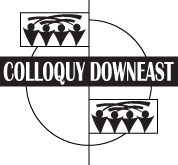Are Corporations People?
| |||||||
“Slavery is the legal fiction that a person is property. Corporate personhood is the legal fiction that property is a person.”
The Supreme Court has ruled that corporations possess an increasing number of constitutionally protected rights. Concern had already been growing that these decisions disproportionately enhance corporate power, but two recent controversial rulings have sharply focused attention on this trend and generated widespread criticism: Citizens United (2010), which held that the First Amendment permits corporations to make contributions to political campaigns in unlimited amounts; and Hobby Lobby (2014), which held that a corporation can refuse to comply with federal law by asserting its right to free exercise of religion under the Religious Freedom Restoration Act (and impliedly under the First Amendment). These decisions raise crucial questions for American Democracy:
Are the rights of the corporation, “an artificial being, invisible, intangible, and existing only in contemplation of law”, being equated with those of flesh-and-blood human persons?
If Citizens United remains the law of the land, will the concentrated economic power of corporations overwhelm the political process?
Will Hobby Lobby subject state and federal laws of general application to a myriad of exceptions based on corporate assertions of religious freedom?
“What constitutional rights do corporations possess in addition to First Amendment free speech and religious exercise rights?”
Do corporations need constitutional rights in order to counterbalance the coercive power of federal and state government?
What, if anything, should be done to change the current state of the law? These and related questions will be the subject of the colloquy.
This colloquy has four sessions. Readings for each session are posted here on the colloquy website. See Syllabus/ Reading section below:
John O’Shea received BA and MA degrees in English Literature, from NYU, a JD degree from St. John’s Univ. School of Law, and an LLM (Master of Laws in Trade Regulation and Intellectual Property) from NYU School of Law. Retiring after 35 years of the practice of law, John and his wife, Diane, now live in Sedgwick, ME and Jupiter, FL.
Syllabus/Reading
Session I is a discussion of the Supreme Court’s historically inconsistent views of corporate personhood and its recent pro-corporation decisions, focusing principally on Citizens United which greatly increased corporate America’s political power. The Court split 5-4 in the case – – is the Majority or Dissent more persuasive?
We will also review other recent Supreme Court decisions recognizing corporate constitutional rights and the effect of those rulings on the political process and governmental regulations.
Prelude Citizens United and Hobby Lobby
Citizens United v. Federal Election Commission
Session II examines the interface between corporate personhood and religion as illuminated by Hobby Lobby where the Supreme Court, for the first time, extended religious Free Exercise rights to for-profit corporations. Discussion will center on the impact of the First Amendment and the Religious Freedom Restoration Act. Does the Majority Opinion or Dissent make more sense?
How did we get here?
Evolving concepts of what corporations are:
The corporation as solely a legal fiction.
The corporation as an aggregate of human individuals The corporation as a real and independent person.
The Supreme Court’s inconsistent views on corporations.
Are the different bases on which the Court has found corporations to have constitutional rights based on legal principles or result-oriented rationalizations?
Session III will focus on the other protections that courts have extended to corporations under the Bill of Rights. The principal effect of these decisions has been to free corporations from regulations enacted by Congress or state legislatures. Are these decisions reasonable? Are they consistent with democracy? There are many types of corporations, should they all enjoy the same rights?
Other constitutional rights of corporations. 1st Amendment;
4th Amendment
5th Amendment
6th Amendment
7th Amendment
8th Amendment
14th Amendment.
Has the Supreme Court ever ruled explicitly that a corporations is the equivalent of a human individual?
There are many types of corporations. Should different types of corporations possess different types of constitutional rights?
Corporations and the Bill of Rights
Session IV
Can/should the law be changed? Proposed Constitutional Amendments:
Abolishing corporate personhood: “The People’s Rights Amendment” “We, the People Amendment”
Allowing the regulation of political contributions “Citizens’ Equality Amendment”
Is changing the law by constitutional amendment realistic?
What are the chances of the law being changed by a changing Supreme Court?
Is the real problem corporate economic power, independent of the issue of corporate personhood?
Citizens United Impact on Campaign Finance
In the Aftermath of CU and HL, What Can Be Done?
▼ Registration
Registration
Bookings are now closed (or the colloquy has been cancelled)
We aren't currently accepting bookings for Are Corporations People?.
If you are trying to pay for a colloquy that you've already attended or have questions about refunds, please contact our Treasurer to work out the details.
▲ Hide...
